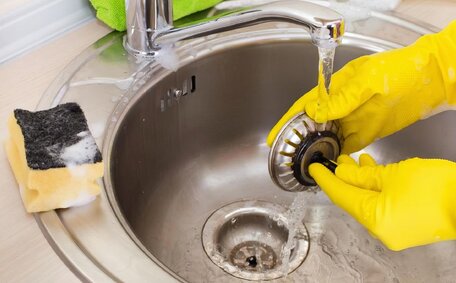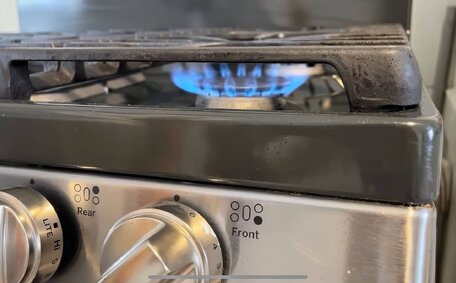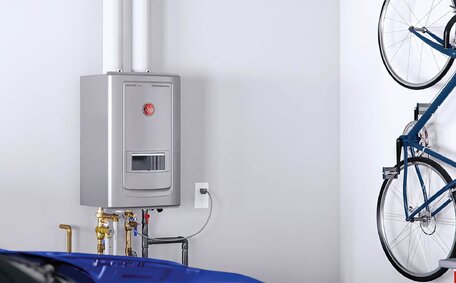Introduction to Gas Safety for Landlords
Landlords are obligated to prioritise gas safety in their rentals, mitigating risks and fulfilling legal requirements. Maintaining gas appliances and infrastructure is particularly crucial to these obligations.
A licenced professional must install, maintain and routinely inspect all gas equipment to prevent hazards like gas leaks and carbon monoxide poisoning.
At Pennant Hills Plumbing, we understand the critical importance of ensuring your gas systems are secure and meet safety compliance for landlords in the Sydney area and their residential tenancy. With our extensive experience in plumbing and gas fitting, we equip property owners with the vital knowledge required to safeguard their properties and comply with legal obligations.
This helpful guide will cover everything Sydney landlords must know about adhering to gas safety regulations in their rental properties. This guide will detail landlords’ responsibilities, mandatory safety checks, certificates, and essential practices to comply with NSW regulations.
Working with accredited gas fitters like Pennant Hills Plumbing ensures compliance and tenant safety.
Understanding Legal Obligations and Compliance
Rental providers in Sydney have significant legal obligations to maintain gas safety and compliance across their properties. This is governed by both NSW and national regulations, including the Tenancies Act, that exist to protect the wellbeing of tenants.
Key gas safety responsibilities for landlords encompass:
- ensuring all gas installations, including appliances, flues, and pipework, are properly installed and safely maintained by a licenced gas fitter.
- Arranging an annual gas safety inspection for all gas appliances and flues by a certified technician.
- Landlords must issue a new Gas Safety Certificate and a copy of the gas safety record to new tenants before they move in and to existing tenants within 28 days of the inspection.
- Maintain a detailed gas safety record, holding all certificates for at least two years, to meet the minimum standards.
- Conduct thorough checks and repairs on gas appliances when necessary.
- Remove unsafe gas appliances from service immediately.
Ignoring these requirements can result in hefty fines, potentially reaching $22,000, and the possibility of a section 21 notice. It could also put your tenants’ safety at risk from potential hazards like gas leaks, explosions and carbon monoxide poisoning.
That’s why it’s essential to make sure to stay on top of gas safety requirements and ensure full compliance.
Hiring a registered licensed Sydney gas fitting company like Pennant Hills Plumbing takes the stress out of the process - our technicians liaise with the property manager to handle the entire gas inspection, certification and reporting so your rental property always meets NSW safety standards.
Conducting Regular Gas Safety Checks
As a landlord, ensuring property safety is paramount; you must organise annual gas safety checks for all appliances and flues.
Faulty or poorly maintained gas appliances can lead to dangerous gas leaks, explosions and carbon monoxide poisoning - putting your tenants lives at risk.
Here are some tips for conducting proper gas safety checks:
- Schedule your gas safety checks well in advance with a registered engineer for guaranteed service.
- grant the technician entry to all gas fixtures such as heaters, cooktops and hot water units.
- let the technician evaluate the safe operation of gas electrical appliances, pipework and flues for potential issues.
- Secure a Gas Safety Certificate quickly, fulfilling the 28-day issuance requirement.
- Retain Certificates on file for a span of at least two years.
- Act immediately on any faulty or dangerous appliances.
Regularly conducted gas safety inspections ensure that your rental property’s gas appliances comply with safety standards. Our technicians at Pennant Hills Plumbing can handle the entire process, giving you peace of mind that your property meets its gas safety obligations.
Developing a maintenance checklist covering key tasks is essential, such as:
- Replacing air filters on furnaces and heaters.
- Cleaning burners, pilot lights and flues to remove any blockages.
- Checking pipe connheat exchanger, vents and ducts.
- Testing safety controls like flame failure devices.
- Ensuring appliance stability and clearances are in good working order.
While tenants may manage simple upkeep, only a skilled gas fitter should perform thorough maintenance on gas systems to guarantee safety and accuracy. Annual servicing of gas appliances is recommended to maintain safety within your property. Preventative maintenance from a company like Pennant Hills Plumbing helps minimise the risk of hazardous gas incidents in your rental property.
Choosing Qualified Gas Fitters
Undertaking gas work without proper licensing or hiring unqualified individuals endangers tenant safety.
In Australia, gasfitters are legally required to hold a state or territory-issued licence. State laws differ marginally; however, gas fitters need a relevant individual or business licence to legally undertake any gas-related work.
When selecting a qualified gas fitter, check that they:
- Possess a current individual or business gas fitting licence from the relevant state authority, like NSW Fair Trading for those in NSW.
- Have a licence pertinent to the specific gas work required, for instance, for natural or LP gas.
- Carry appropriate insurance that covers gas fitting activities.
- Are members of the Australian Gas Association or Master Plumbers Association.
Reputable gas fitting companies like Pennant Hills Plumbing tick all these boxes. Our experienced, licenced gasfitters can handle everything from new gas appliance installation to repairs and maintenance.
It is critical not to compromise on gas safety standards. Through diligent accreditation verification, you can enlist competent gas fitters to secure your rental’s safety.
The most effective way to avoid carbon monoxide poisoning is having a locked. Built-up debris or nests in the flue/venting system can cause gases to flow back into the room instead of outside. Ensuring appliances have proper ventilation reduces CO risks.
Tenants should be educated on the symptoms of CO poisoning which include headachected, they should ventilate the property, turn off appliances and immediately call 000. Installing CO alarms is a proactive safety step that any tenant should undertake themselves as an extra preventative measure.
Staying vigilant with regular maintenance, checks, and awareness empowers landlords to uphold tenant health safety by reducing the threat of carbon monoxide poisoning. Partnering with a professional gas fitting company like Pennant Hills Plumbing is the best way to minimise hazards.
Preventing Carbon Monoxide Poisoning
Carbon monoxide poisoning is a serious potential hazard in any home with gas appliances. This toxic gas is invisible, odourless and can be fatal at high concentrations. As a landlord, it is your responsibility to prevent carbon monoxide risks by properly maintaining gas appliances and conducting regular safety checks.
The most effective way to avoid carbon monoxide poisoning is having a licenced gas fitter annually inspect all gas heaters, stoves, hot water systems and other appliances. They should also check for any issues that could lead to incomplete combustion and CO production.
Keeping Proper Records and Documentation
As a landlord, you must keep detailed records relating to the gas appliances and infrastructure at your rental property. This is a legal requirement and essential for demonstrating gas safety compliance.
The key gas safety records you should retain include:
- Annual Gas Safety Certificates - these must be kept for 2 years minimum.
- Service and maintenance logs - keep records of all gas appliance servicing, repairs etc.
We recommend keeping both digital and hard copies of all records. Be sure to provide a copy of the gas safety certificate to new tenants before move-in and within 28 days of the annual ords and Documentation
As a landlord, you must keep detailed records relating to the gas appliances and infrastructure at your rental property.
- Gas appliance instruction manuals - useful for troubleshooting and reference.
Responding to Gas Leaks and Emergencies
As a landlord, knowing how to respond quickly and effectively to gas leaks or emergencies is crucial to prevent potential disasters and keep your tenants safe. Here are the key steps to take if you suspect a gas leak or other emergency:
- Evacuate the property immediately - get everyone out of the building and to a safe distance before calling emergency services.
- Call the fire brigade on 000 - emergency services are best equipped to assess and handle any gas or plumbing emergencies.
- conduct an electrical safety check by ensuring no electrical devices or appliances are turned on or off, including lights. This could spark an explosion.
- Do not use open flames or smoke near the area.
- Open windows to ventilate the property if it is safe to do so.
- Turn off the gas supply at the mains without delay if you can safely access the main valve.
- Notify your tenants and provide support as required.
- Do not re-enter the property until emergency services say it is safe.
In any gas emergency, calling qualified professionals immediately is crucial. Here at Pennant Hmplete follow-up documentation.
Having an emergency response plan ready and knowing what to do can be the difference between a minor gas leak and a catastrophic explosion. As a landlord, your quick responjor property damage. Partner with a reliable emergency plumber like Pennant Hills Plumbing to stay prepared.






